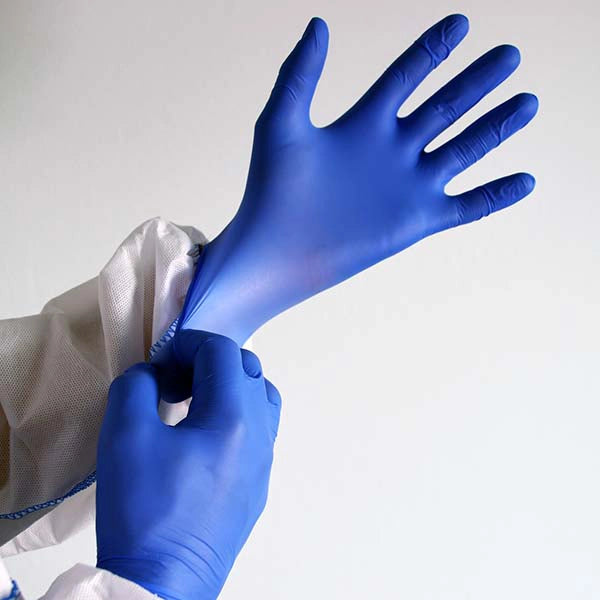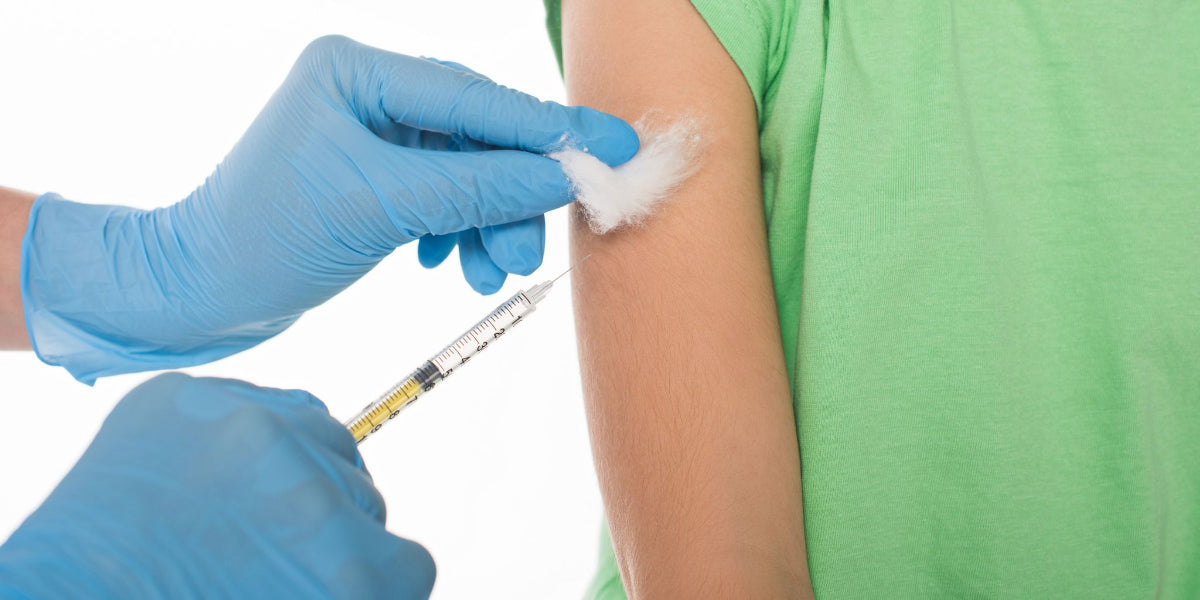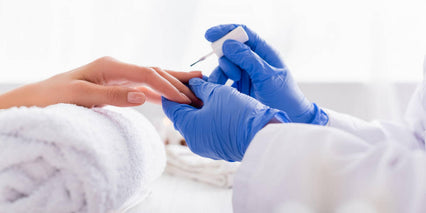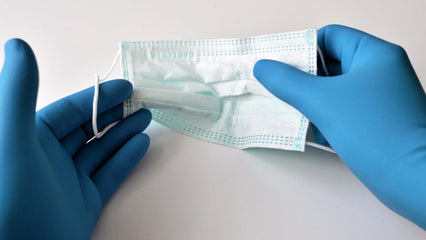Have you ever heard of puncture proof gloves? What are they, and how do they work? Is this something I need when working with needles on a daily basis? Is getting pricked or poked a common threat?
Read more to learn about how you can protect yourself while handling sharp tools in a multitude of industries.
What are Puncture Proof Gloves?
When people search for puncture proof gloves, what they really mean are puncture proof gloves. Puncture resistant gloves are designed to protect the wearer from puncture wounds sustained from sharp objects such as needles.
Are There Puncture Proof Gloves?
Puncture resistance gloves are available in a vast array of materials and styles to fit any need or budget. Most gloves have a latex or leather outer with insulating inner liners. Some are lined with Kevlar®, while others are lined with neoprene. Many gloves have nylon linings for added puncture protection and durability.
What Kind of Gloves are Puncture Resistant?
There are a wide range of glove types that are puncture resistant. Choosing the best one will depend on the task. ASTM (American Society for Testing and Materials) has developed a set of standards to help you decide among the categories of gloves.
Look for the following puncture standards to know what level of hand protection you need before making your next purchase.
ASTM F2878 - Best for use with fine sharp objects such as medical needles.
EN 388:1994 - Protects against larger objects with a puncture threat such as broken glass and wood splinters.
Puncture resistant gloves are made using epoxy plates, woven Kevlar®, nitrile polymer, and steel mesh. Many puncture gloves only protect the palm area of the hand. Full-coverage gloves are available, but they offer less dexterity and comfort at a higher price.
What are Puncture Resistant Gloves Used For?
Puncture resistant gloves provide extra protection from syringe pokes, needlesticks, and cuts by sharp objects. They are commonly used by:
- Dentists
- Veterinarians
- Tattoo artists
- Construction Workers (heavy machinery)
- Doctors and Nurses (IV insertion)
- Surgeons
- Auto Mechanics & Mechanics (heavy automotive repair, loosening nuts on bolts)
Cut and puncture resistant gloves are ideal for waste handling, janitorial work, construction, healthcare applications, and a variety of other industrial applications.
What Puncture and Cut Resistant Gloves are NOT Used For
Puncture resistant gloves are NOT for general everyday protection against punctures, falls, or work in unsanitary conditions, but rather to protect the wearer from the hazards of work in particular occupations.
Do Cut Resistant Gloves Protect Against Punctures?
Some gloves are cut resistant. Cut resistant gloves protect against cuts from sharp, narrow objects such as knives. Probably the most common use for cut resistant gloves is to protect workers working with sharp sheet metal and glass. However, cut resistant gloves do not stop punctures from work hazards like needles or tattoo guns. Puncture resistant gloves can.
There are only a few safety gloves on the market that offer both cut and puncture protection. They can protect you against the dangers of handling sharp objects, including but not limited to, metal shards, pieces of glass, wire, splinters from wood, thorns, nails, and all types of needles.
Are Nitrile Gloves Puncture Resistant?
According to this study comparing the puncture resistance of nitrile and latex dental examination gloves, nitrile glove resistance is found to be significantly higher among nitrile glove types.
Disposable nitrile gloves offer excellent resistance to punctures and abrasion protection. Puncture resistant medical exam gloves, dental gloves, and food preparation gloves are very popular for effective one-time use hand protection.
As a highly comfortable glove, they also offer contamination protection, excellent grip, outstanding strength, good heat resistance, and protection from dangerous materials.
How Do You Choose the Best Puncture Resistant Gloves?
The best puncture resistant gloves are those that combine strength, puncture resistance, and cut resistance. Other factors to consider are:
Comfort: Most gloves are bulky and hot. Puncture resistant gloves can be comfortably warm or cool.
Durability: Puncture resistant gloves need to last for a long time, so they should resist tear and wear.
Price: If you get value from your work gloves, then you will be willing to spend the money on them.
Brand: Check out what people say about the brands that make puncture resistant gloves.
Excellent work gloves are ideal for handling large objects, but if you work with fine items, you will need something else. Regularly handling hypodermic needles in the healthcare field requires using quality gloves made from puncture resistant material. No glove can be 100% needle proof, but there are some excellent stick proof gloves available.
What are Needlestick Gloves?
Needlestick gloves are designed to protect your hands from needlestick injury. They serve the same purpose as needle proof gloves.
Needles pose an occupational hazard because they may carry diseases such as hepatitis B and HIV. The risk of exposure increases when someone has been pricked by a contaminated needle. Gloves designed specifically to prevent accidental needle sticks have become increasingly popular over the past decade.
What are Needle Proof Gloves?
Needle Proof Gloves are used to prevent injuries from punctures caused by medical needles. Needle resistant gloves are designed to protect the wearer from cuts that occur when they are cut with sharp, narrow objects, like a syringe or IV needles.
Finding the best needle proof gloves will depend on your work environment and the level of complete protection needed. Higher risk situations will need excellent protection against needles while small jobs around the home require moderate protection.
It is important to remember that wearing appropriate durable gloves while working with needles or sharp medical devices reduces the risk of injury significantly. Practicing double-gloving reduces your risk down even further.
What are Needle Stick Proof Gloves?
Needlestick gloves provide excellent puncture resistance from surgical and certain hypodermic needles. These gloves reduce the risk of needlestick injury, which can transmit bloodborne pathogens, from being stuck by a needle.
How do Needle Puncture Proof Gloves Work?
Needle protection gloves can be made from a variety of materials. Some are made with materials such as butyl rubber, nitrile rubber, neoprene (a synthetic rubber), and other plastics. Some needle gloves are made with metal mesh or metal fibers that are woven into the cloth material.
What are Needle Resistant Disposable Gloves?
Disposable gloves are inexpensive and easy to use. Many now have high resistance to the pokes and pricks of needles. The most common type of disposable glove with high needle resistance is nitrile. Nitrile gloves are very soft and flexible, making it comfortable to wear. They also provide good barrier properties.
Who Uses Needle-Resistant Gloves?
Needle-resistant gloves are essential PPE for those in demanding work environments with needles. To prevent needle stick injuries, health care professionals, physicians, and pharmacies often use needle-resistant gloves.
People who work with needles regularly where quality personal protective equipment is essential include:
- Pharmacists
- Dentists (dental assistants, hygienists, dental technicians)
- Doctors (clinical lab personnel and anesthesiologists)
- Surgeons and other medical professionals (physician assistants, nurses, paramedics etc.)
- Law enforcement officers (first responders, firefighters, etc.)
Needlestick injuries can be serious in these professions due to a higher risk of bloodborne infection (e.g. hepatitis B and C, and HIV) compared to the general population.
Disposable Non-Puncture Gloves
Many healthcare workers need disposable puncture proof gloves. High quality nitrile gloves are extremely puncture-resistant, and will withstand corrosion-inducing substances while remaining comfortable for the wearer.
Disposable puncture-resistant nitrile gloves are designed to offer a combination of chemical resistance, puncture, and needle stick protection from a wide variety of substances used by medical workers.
Can Double Gloving Prevent Needlestick Injury?
Accidental needle stick injuries occur most often among operating room workers and can be serious. This is especially true if the tips of the needles are contaminated with blood, as some types of needles can carry human viruses, including Hepatitis B and C, and HIV.
Double gloving has shown to reduce the amount of blood that is transmitted when a needlestick injury occurs according to this study testing needlestick injuries with single or double gloving.
Where Can I Find Disposable Puncture Resistant Gloves?
Our disposable nitrile gloves have a thickness range of 4 mils to 4.5 mils, and are intended to be highly durable and suitable for any task you may encounter. All of our nitrile gloves have the American Society for Testing and Materials' stringent testing requirements.
Nitrile gloves are well suited to medical settings, and the nitrile gloves in our range come with built-in textiles for additional superior comfort. Non-puncture gloves from our selection can be used in many industries that have a need for puncture proof products. The nitrile material also helps to reduce the risk of cross-contamination and aids in adequate protection with patients. Our nitrile exam gloves are available in powder free, low allergy, or textured varieties, so you can find the perfect match for your needs.
Needle Proof Gloves for Nurses
For use in hospitals, clinics, and medical exam offices, nitrile needle proof gloves are the best option for nurses. These throw-away protective gloves offer maximum protection and affordability for both nurses and patients. Be sure to choose powder-free nitrile gloves to keep surfaces clean and prevent skin irritations.
What are the Materials Used in Surgical Gloves?
The materials used to make surgical gloves are from different polymers. These polymers include latex, neoprene, polyvinyl chloride, and nitrile rubber. The latex glove type is typically avoided due to an increase in latex allergies. A pair of gloves for medical use are often powder-free to keep surfaces clean and reduce irritations to the skin. Nitrile medical gloves offer high abrasion resistance, puncture resistance, tear resistance, and excellent tensile strength.
Conclusion
Puncture proof gloves are often mistaken for cut and puncture resistant gloves and even needle stick proof gloves that are made from fabric or disposable nitrile. Protecting the user against wounds from sharp items such as needles is essential.
While there are several anti-puncture gloves available, no one item or gear can shield the wearer from all potential puncture risks. Anti-puncture gloves are not 100% impervious to intrusion. However, they are effectively and reliably protective of the person wearing them.
Are you in need of disposable hand protection resistant to needle sticks and small sharp surgical or dental tools? You have come to the right place. Give us a try! We are glad to help.





